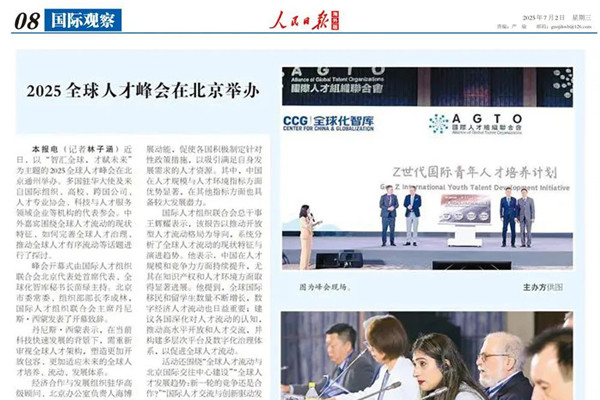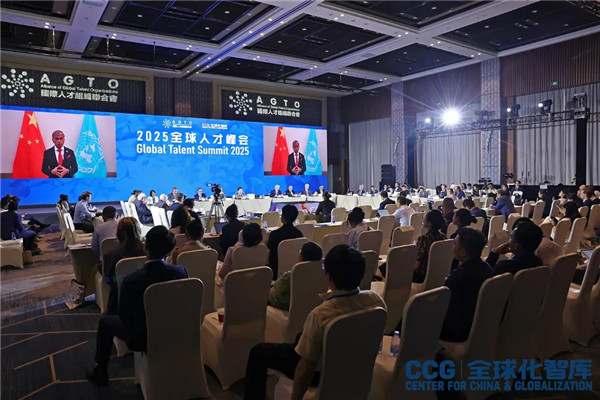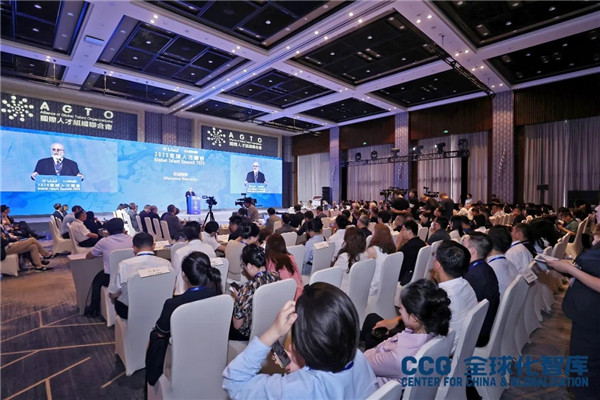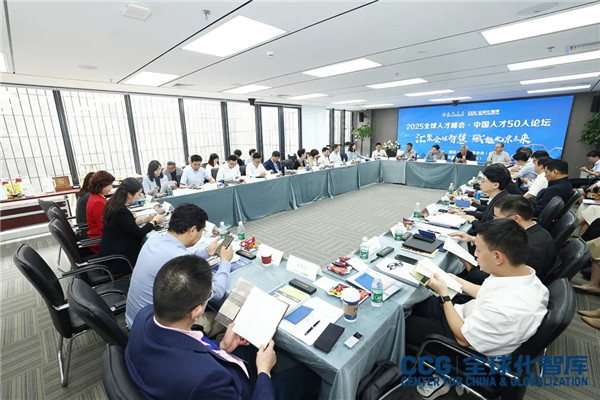【Global Times】Chinese students, scholars contributors to US and China
2018年3月19日Exactly 150 years ago, 120 Chinese teenagers were sent to the US to study on the so-called "Boxer Indemnity Scholarship." Offered by US President Theodore Roosevelt, the program became a landmark in the history of Sino-US people-to-people exchange. Members of China’s first generation of "returnees (haigui)" included Zhan Tianyou, known as the "father of Chinese railways," and Tong Shaoyi, who was elected the first prime minister of the Republic of China in 1912. Together, these returnees helped to shape China’s modern history. 150 years later, however, a recent US congressional hearing singled out Chinese students and scholars as a national security threat, casting a shadow over bilateral relations already beleaguered by trade tensions. In the broader context of a resurgence of the "China threat" sentiment in the US, however, it is high time that we focused on the forest instead of the trees.
Let’s have a quick look at the facts. There are 350,755 Chinese students currently enrolled in US universities, accounting for 32.5 percent of the total 1.08 million international students in the US, according to the latest report issued by the Institute of International Education (IIE). On average, a Chinese student is expected to spend around $45,000 annually. Collectively, the contribution to US economy amounts to $17.9 billion each year. The number grows more substantially if sectors such as travel and tourism, retail and other services are included.
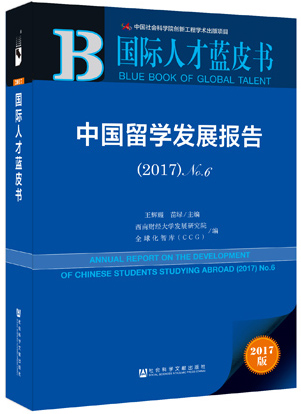
According to the "Chinese Overseas Students Report (2017)" published by the Center for China and Globalization (CCG), a premier Chinese independent think tank specialized in overseas Chinese studies, Chinese students at US universities contributed $11.43 billion in 2016 to the US economy, representing 34.8 percent of the total overseas students’ consumer capacity.
Thousands of Chinese students have chosen to work in the US after graduation as scientists, engineers, doctors, lawyers and professors, providing favorable human resources for R&D, business and finance, innovation and entrepreneurship across the US in places like Silicon Valley and Wall Street. More than 100 scholars at US academies of sciences, engineering, arts, medicine, as well as eight US Nobel Prize laureates, are Chinese Americans. It is also worth mentioning that many Chinese Americans have gone into public service or even run for political office to serve the nation of immigrants.
Moreover, some Chinese students later employed by large US multinationals such as Microsoft, GE, Goldman Sachs and McDonald’s are sent to their regional headquarters and subsidiaries in China as senior executives. Those managers, with their American training and sensitivity to China’s conditions and culture, become valuable assets to business communities across the Pacific.
From the US’ perspective, the ability to attract talented people from across the globe, especially international students graduating from top US universities, is one of the reasons the nation leads the world in scientific and technological innovation. Chinese students, scholars and professionals are part of the US’ comparative advantage and will continue to be. Statistics from China’s Ministry of Education show that nearly half of all Chinese students studying abroad chose the US as their destination in 2016, a testimony to the strong appeal of America’s world-class universities.
China, on the other hand, has also been a beneficiary of the bilateral flows of talent. Since the country ushered in the era of Reform and Opening-up in 1978, a total of 4.58 million Chinese have gone abroad to study and 2.65 million of them returned. These returnees have catalyzed China’s integration with the world and made significant contributions to the nation’s economic development and scientific progress.
Labeling Chinese students and scholars as spies harms US national interests in that these unfounded suspicions would only encourage xenophobic sentiments in US society, therefore further alienating the Chinese-American community and deterring Chinese talents from participating in US progress. Driving a wedge between China and the US over talent exchanges would serve no one but anti-immigrant extremists.
But we also have faith in the US system’s ample capacity for redressing historical errors. A resolution passed in 2012 apologizing for discriminative laws targeting Chinese immigrants a century earlier is such a case. We hope and believe that the anti-immigrant current will recede and more rational understanding of national interest and national security will prevail in the end.
As a researcher of migration and talent acquisition policies, I recommend the following actions to help the two governments resolve these current controversies or prevent similar ones from surging in the future.
Firstly, it’s necessary to include the topic of bilateral talent flows in the agenda for high-level communication channels between Beijing and Washington. One of the four pillars of the US-China Comprehensive Dialogue – Social and Cultural Issues Dialogue could be an ideal platform for the two sides to express concerns, exchange perspectives and more importantly, promote goodwill and mutual interest.
Secondly, relevant agencies and organizations working in the field of overseas education can develop training programs oriented toward prospective students and scholars so that those who plan on studying and working in the US would have adequate understanding about how US laws and legal systems work, professional ethics and other socially-accepted behaviors.
Lastly, as the third-largest destination for foreign students in the world, China should constantly create favorable conditions to woo overseas students and scholars, especially those from the US, the world’s most advanced economy. China needs to enlarge its high-end talent pool to advance its quality-oriented development goals in the "new era" and US-educated intellectuals are poised to make contributions to the "rejuvenation of the Chinese nation."
Education-based cross-border migration is an integral part of people-to- people exchanges that have proven to play a positive role in promoting human and economic development across the globe. The free movement of global talent constitutes a strand of globalization with the benefits outweighing the harms. Like economic globalization, no government could thrive on nativist and parochial policies that go against the tide of history.
From Global Times,2018-3-15
